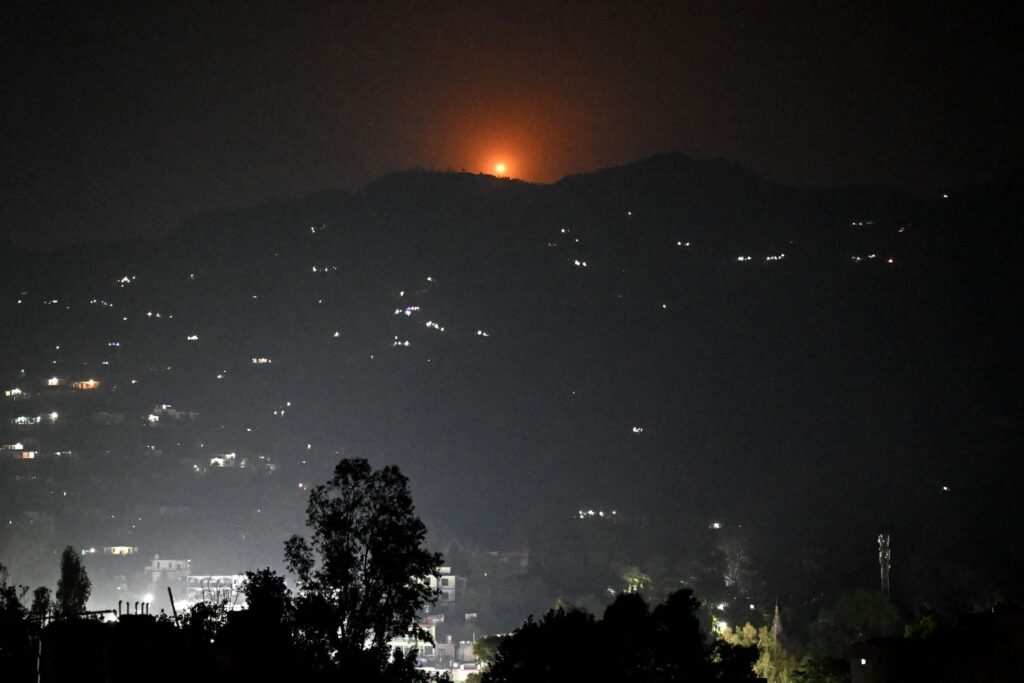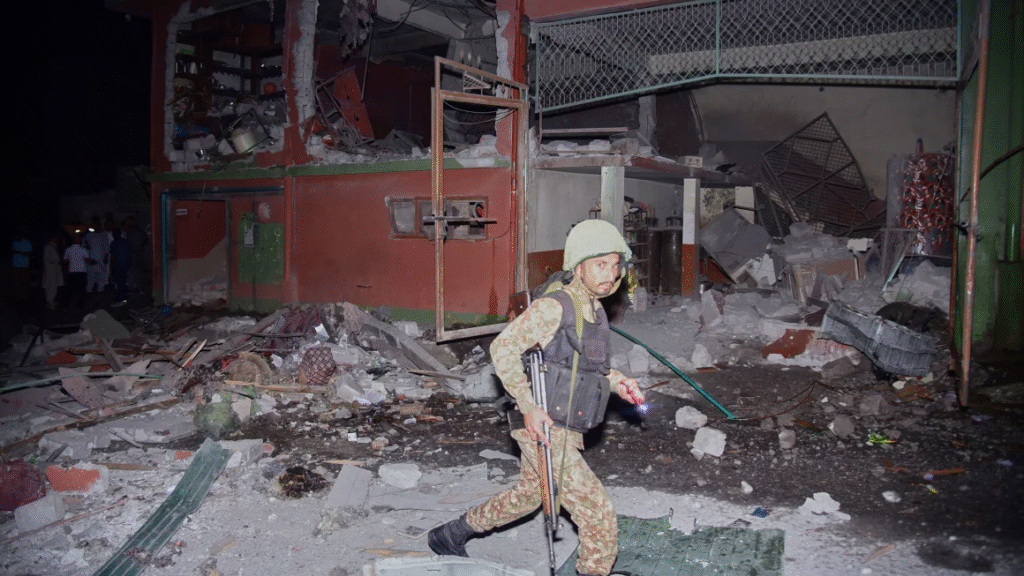India Pakistan War : Latest Updates
On May 7, 2025, India launched a military operation named “Operation Sindoor,” targeting nine sites in Pakistan and Pakistan-administered Kashmir.

The strikes were a response to a deadly terrorist attack on April 22 in Pahalgam, Indian-administered Kashmir, where 26 people, mostly Hindu tourists, were killed. India claims the operation was aimed at terrorist infrastructure, not Pakistan’s military, to prevent further attacks.
The escalation has heightened tensions between the nuclear-armed neighbors, with both sides reporting casualties and damage. Pakistan has condemned the strikes as an “act of war” and vowed a strong response, raising fears of further conflict.
India’s Foreign Secretary Vikram Misri described the Pahalgam attack as one of the worst on civilians since the 2008 Mumbai attacks.
He said the strikes targeted terrorist camps linked to groups like Jaish-e-Mohammed (JeM) and Lashkar-e-Taiba, accused of planning attacks on India.
The operation involved precision missile strikes and loitering munitions, hitting recruitment centers, training camps, and weapon storage sites. Indian officials emphasized that no Pakistani military facilities were targeted to avoid escalation. Visuals shared by India’s Ministry of Defence showed destroyed structures, claiming successful hits on terrorist bases.
The United Nations and world leaders, including China and the U.S., urged both nations to exercise restraint, warning that a full-scale conflict could be catastrophic.
The strikes disrupted air travel, with northern Indian airports like Srinagar and Jammu closing temporarily. Pakistan’s economy, already fragile, faces further strain as airlines avoid its airspace. Cultural exchanges between the two nations have also halted, deepening the divide.
Casualties and Devastation
The strikes caused significant loss of life and damage on both sides. Pakistan reported 26 civilian deaths and 46 injuries across six targeted sites, including Kotli, Muzaffarabad, and Bahawalpur.

Among the dead were 10 members of JeM chief Masood Azhar’s family, including his sister and her husband, killed in a strike on a complex in Bahawalpur. Pakistani officials claim the targeted sites were civilian areas, not terrorist camps, and accused India of violating international law. Images from Muzaffarabad showed damaged buildings, including a mosque, with residents evacuating in panic.
India reported 10 deaths and 48 injuries in Indian-administered Kashmir due to retaliatory shelling by Pakistan along the Line of Control (LoC).
Three civilians were killed by Pakistani artillery fire overnight, according to India’s Defence Ministry. The fighting along the LoC marked some of the heaviest exchanges in decades, with both sides using artillery and small arms. Indian officials said the strikes were carefully planned to minimize civilian casualties, but Pakistan’s claims of civilian deaths have fueled anger.
The devastation extended beyond human losses. In Pakistan, infrastructure like dams and hydropower projects was reportedly hit, though India denies targeting such sites.
Viral videos from Pakistan showed explosions and smoke, capturing the chaos. In India, border areas faced disruptions, with residents near the LoC living in fear of further escalation. The economic impact is notable, with Pakistan’s struggling economy facing additional pressure from disrupted trade and travel.
India’s Claim Targeting Terrorists, Not War
India has maintained that Operation Sindoor was not an act of war but a precise anti-terrorism operation.
The Indian Army said the strikes targeted nine terrorist camps, including four linked to JeM, three to Lashkar-e-Taiba, and two to Hizbul Mujahideen.
Colonel Sofiya Qureshi, an Indian military spokesperson, said the targets were chosen based on intelligence about planned attacks. The operation used advanced technology, including loitering munitions, to ensure accuracy and avoid civilian areas.
Prime Minister Narendra Modi, facing domestic pressure to act after the Pahalgam attack, gave the military “complete operational freedom.” Indian leaders, including Home Minister Amit Shah, vowed strong action against terrorism, framing the strikes as justice for the 26 victims, including one Nepali citizen.
The government shared visuals from Pakistani social media to show the destruction of terrorist infrastructure, claiming the operation was a success.
Indian officials, including Foreign Secretary Misri, stressed that the strikes were “measured and non-escalatory,” aimed at deterring future attacks without provoking a broader conflict.
Public sentiment in India has largely supported the strikes. Political leaders like Lalu Prasad Yadav and Shashi Tharoor praised the military’s actions, with social media posts reflecting national pride.
However, some critics warned that the operation risks escalating into a larger conflict, given Pakistan’s nuclear capabilities and its vow to retaliate.
Pakistan’s Response Condemnation and Retaliation
Pakistan strongly condemned India’s strikes, calling them a “blatant act of war” and a violation of its sovereignty. Prime Minister Shehbaz Sharif said the nation stands united with its armed forces, promising a “befitting response.”
Pakistan’s military reported shooting down five Indian fighter jets, though India has not confirmed any losses. General Ahmed Chaudhry, a Pakistani military spokesperson, denied that the targeted sites were terrorist camps, insisting they were civilian areas. He accused India of fabricating claims to justify aggression.
Pakistan’s retaliation included heavy artillery fire along the LoC, killing 10 people in Indian-administered Kashmir, according to India.
Pakistan also test-fired a surface-to-surface missile, signaling its readiness to escalate if needed. Information Minister Attaullah Tarar accused India of targeting civilians and warned that Pakistan’s military is prepared for any further aggression. Posts on X reflected outrage in Pakistan, with users calling for a strong counterattack.
The strikes have deepened Pakistan’s domestic challenges. The deaths of Masood Azhar’s family members have intensified anger, with JeM vowing revenge.
Pakistan’s government faces pressure to respond decisively while grappling with an economic crisis and internal security issues. International allies, including China, expressed regret over India’s actions, while Israel supported India’s right to self-defense.
Pakistan’s Plans and Global Concerns
Pakistan has signaled plans for a robust military response but has not detailed specific actions. Military officials vowed to retaliate proportionately, with preparations underway to strengthen defenses along the border. Pakistan’s test-firing of a missile suggests it may showcase its military capabilities to deter further Indian strikes. There are also indications that Pakistan could escalate cyberattacks or support insurgent groups in Kashmir, though it denies such involvement.

Diplomatically, Pakistan is seeking international support. It has called for UN intervention and plans to raise the issue at the Organization of Islamic Cooperation, accusing India of aggression. Pakistan’s Foreign Ministry is engaging with allies like China and Turkey to build a coalition against India’s actions. However, its economic woes and reliance on international aid may limit its ability to sustain a prolonged conflict.
The international community remains alarmed. UN Secretary-General António Guterres called for “maximum military restraint,” warning that a war between India and Pakistan would be disastrous. The U.S. is monitoring the situation, with Secretary of State Marco Rubio engaging Indian officials for a peaceful resolution. The closure of airspace and the risk of nuclear escalation have heightened global fears, with analysts urging both nations to de-escalate through dialogue.
As tensions simmer, the region braces for Pakistan’s next move. Both countries are on high alert, with border areas militarized and civilians caught in the crossfire. The world watches anxiously, hoping diplomacy can prevent a slide into all-out war.


 Pakistan wins tech race against India, says IT minister
Pakistan wins tech race against India, says IT minister  Bilawal lauds journalists, Gen Z for exposing India’s narrative
Bilawal lauds journalists, Gen Z for exposing India’s narrative  Iranian President Pezeshkian to Visit Pakistan on First Official Trip
Iranian President Pezeshkian to Visit Pakistan on First Official Trip  Trump’s 25% Tariff Threat Sparks Major Political Storm in India
Trump’s 25% Tariff Threat Sparks Major Political Storm in India  ICCI invites Bangladesh to boost investment in Pakistan
ICCI invites Bangladesh to boost investment in Pakistan  US and Pakistan Seal New Trade Deal with Promises and Oil
US and Pakistan Seal New Trade Deal with Promises and Oil